
|
Scooped by
BigField GEG Tech
onto Genetics - GEG Tech top picks January 3, 2023 10:33 AM
|
Get Started for FREE
Sign up with Facebook Sign up with X
I don't have a Facebook or a X account

 Your new post is loading... Your new post is loading...
 Your new post is loading... Your new post is loading...
The gene variant APOE4 is finally giving up some of its secrets, spurring new strategies to stop the dreaded neurodegenerative disease
BigField GEG Tech's insight:
The gene variant APOE4 is finally giving up some of its secrets, spurring new strategies to stop the dreaded neurodegenerative disease
Some bacteria appear to encase their genomes in proteins called histones — which weren’t thought to exist in bacterial cells.
BigField GEG Tech's insight:
Some bacteria appear to encase their genomes in proteins called histones — which weren’t thought to exist in bacterial cells.
Neanderthal brains were similar in size to those of modern humans. We sought to investigate potential differences in neurogenesis during neocortex development. Modern human transketolase-like
BigField GEG Tech's insight:
In a recent study published in Science, researchers demonstrated how transketolase-like 1 (TKTL1) gene expression influenced neocortical neurogenesis in modern humans.
BigField GEG Tech's insight:
In a study published online June 8 in the journal Nature that involved the genetic manipulation of yeast cells in the laboratory, University of Michigan biologists show that most synonymous mutations are strongly harmful.
Cedars-Sinai investigators have identified a gene that plays an essential role in the innate human immune system. The gene, NLRP11, helps activate the inflammatory response that tells the body's white blood cells to go on the attack against a foreign presence.
BigField GEG Tech's insight:
Cedars-Sinai researchers have identified a gene that plays a key role in the human innate immune system. The gene, NLRP11, helps activate the inflammatory response that tells the body's white blood cells to go on the attack against a foreign presence. The findings, published in Nature Immunology, bring medical science closer to understanding a biological process that can both help and harm the body. The researchers used a gene-editing system called CRISPR/Cas9 to delete genes or introduce genetic mutations into human white blood cells called macrophages. They found that when they deleted NLRP11, it prevented an immune system sensor called the NLRP3 inflammasome from being activated and triggering the inflammatory response. When the researchers restored the NLRP11 gene, the NLRP3 inflammasome sent out its attack signals, triggering the typical inflammatory process. The researchers chose to focus on this particular gene because it is not expressed in mice, leading them to hypothesise that it is an integral part of the complex immune system that exists in humans.
Researchers have identified a specialized protein that appears to help prevent tumor cells from entering the bloodstream and spreading to other parts of the body.
BigField GEG Tech's insight:
Researchers have long known that TRPM7 regulates calcium in cells. However, it has recently been shown that TRPM7 appears to help prevent tumor cells from entering the bloodstream and spreading to other parts of the body. TRPM7 senses the pressure of the fluid circulating in the circulation and prevents the cells from spreading through the vascular system. Metastatic tumor cells that can travel and spread have markedly reduced levels of this sensing protein, which is why they effectively enter the circulation instead of turning away from the fluid flow. The researchers further show that artificially increasing TRPM7 expression in tumor cells can help stop intravasation and thus ultimately metastasis: it is at this stage of spread that cancer becomes much more dangerous. When the tumor is said to be "primary", surgery can still save the person. The team therefore hopes that these results could eventually lead to new cancer therapies through the activation of CRISPR, a DNA editing tool.
BigField GEG Tech's insight:
The ICGC/TCGA Pan-Cancer Analysis of Whole Genomes (PCAWG) Project performed whole genome sequencing and integrative analysis on over 2,600 primary cancers and their matching normal tissues across 38 distinct tumor types. This study revealed the extensive role played by large-scale structural mutations in cancer, identified previously-unknown cancer-related mutations in gene regulatory regions, inferred tumor evolution across multiple cancer types, illuminated the interactions between somatic mutations and the transcriptome, and studied the role of germline genetic variants in modulating mutational processes.
Data don’t support many direct-to-consumer products, from telomere assessments to bespoke diets based on genetic sequences.
BigField GEG Tech's insight:
Direct-to-consumer DNA testing has provided genetic information to more than 12 million individuals, traditionally for exploring ancestry. While such testing does not violate ethical guidelines, other uses of consumer DNA testing may cross the line. Over the past few years, many of these DNA testing companies have branched out into the realm of precision health, treading into ethically dangerous territories.
Researchers have determined how satellite DNA, considered to be 'junk DNA,' plays a crucial role in holding the genome together.
BigField GEG Tech's insight:
Researchers at the University of Michigan Life Sciences Institute and the Howard Hughes Medical Institute have determined how satellite DNA, considered to be "junk DNA," plays a crucial role in holding the genome together.
BigField GEG Tech's insight:
A new study of the human microbiome has uncovered millions of previously unknown genes from microbial communities in the human gut, skin, mouth, and vaginal microbiome, allowing for new insights into the role these microbes play in human health and disease.
BigField GEG Tech's insight:
Scientists are a step closer to understanding how DNA, the molecules that carry all of our genetic information, is squeezed into every cell in the body. How DNA is “packaged” in cells influences the activity of our genes and our risk for disease. Elucidating this process will help researchers in all areas of health care, from cancer and heart disease, to muscular dystrophy and osteoarthritis.
BigField GEG Tech's insight:
Despite its medical, social, and economic significance, understanding what primarily causes aging, that is, the mechanisms of the aging process, remains a fundamental and fascinating problem in biology. Accumulating evidence indicates that a small RNA-based gene regulatory machinery, the Piwi-piRNA pathway, represents a shared feature of nonaging (potentially immortal) biological systems. Here the authors discuss about the genomic instability induces by transposable elements which could substantially contribute to the aging process.
BigField GEG Tech's insight:
Almost all life on earth is based on DNA being copied, or replicated, and understanding how this process works could lead to a wide range of discoveries in biology and medicine. Now for the first time scientists have been able to watch individual steps in the replication of a single DNA molecule, with some surprising findings. For one thing, there’s a lot more randomness at work than has been thought. |
Prostate cancer harboring BRCA1/2 mutations are often exceptionally sensitive to PARP inhibitors. However, genomic alterations in other DNA damage response genes have not been consistently predictive of clinical response to PARP inhibition. Here, we perform genome-wide CRISPR-Cas9 knockout screens in BRCA1/2-proficient prostate cancer cells and identify previously unknown genes whose loss has a profound impact on PARP inhibitor response. Specifically, MMS22L deletion, frequently observed (up to 14%) in prostate cancer, renders cells hypersensitive to PARP inhibitors by disrupting RAD51 loading required for homologous recombination repair, although this response is TP53-dependent. Unexpectedly, loss of CHEK2 confers resistance rather than sensitivity to PARP inhibition through increased expression of BRCA2, a target of CHEK2-TP53-E2F7-mediated transcriptional repression. Combined PARP and ATR inhibition overcomes PARP inhibitor resistance caused by CHEK2 loss. Our findings may inform the use of PARP inhibitors beyond BRCA1/2-deficient tumors and support reevaluation of current biomarkers for PARP inhibition in prostate cancer. Identifying prostate cancer patients who may respond well to PARP inhibitors is important for their success in the clinic. Here, using a genome-wide CRISPR-Cas9 knockout screen, the authors identify MMS22L as a biomarker for sensitivity to PARP inhibition in BRCA1/2-proficient prostate cancer.
BigField GEG Tech's insight:
Prostate cancer tumors harboring BRCA1/2 mutations are exceptionally sensitive to PARP inhibitors, while genomic alterations in other DNA damage response (DDR) genes are less sensitive. To identify previously unknown genes whose loss has a profound impact on PARP inhibitor response, researchers led a multinational effort to perform genome-wide CRISPR-Cas9 knockout screens. The goal of the study was to inform the use of PARP inhibitors beyond BRCA1/2-deficient tumors and to support the re-evaluation of current biomarkers for PARP inhibition in prostate cancer. The study identified several novel genes, for example, MMS22L and RNASEH2B, that are frequently deleted in prostate cancer. These genes could serve as predictive biomarkers for PARP inhibitor response in prostate cancer, the study found. The research team also found that loss of CHEK2 confers resistance, rather than sensitivity, to PARP inhibition.
BigField GEG Tech's insight:
Cancer can be caused by genetic mutations, but the impact of specific types such as structural variants that break and rejoin DNA can vary greatly. Using CRISPR-Cas9 gene editing, the research team introduced genetic mutations by cutting DNA at certain points in the genome. They found that some of the variants they created had major impacts on the expression of nearby genes and could ultimately cause cancer, but most had virtually no impact. Some genes seemed to go haywire when introduced into environments with new regulatory sequences, and others were not affected at all. The type of sequence introduced seemed to have a huge impact on whether the cell became cancerous or not. The results, published in Nature on December 7, 2022, show that the activity of these mutations depends on the distance between a particular gene and the sequences that regulate the gene, as well as the activity level of the regulatory sequences involved. The team's next step is to test whether there are other factors in the genome that contribute to oncogene activation.
BigField GEG Tech's insight:
US researchers have created the most detailed map to date of how complex networks of genes work together. The new insights into how these genes relate to each other shed light on both the fundamental drivers of immune cell function and immune disease. To carry out this work, the researchers turned to the CRISPR-Cas9 gene editing system, which allowed them to disrupt thousands of genes at once. They focused on genes that make a type of protein called transcription factors. The scientists then studied the impact of disrupting these transcription factors on three immune genes known to play an important role in T cell function: IL2RA, IL-2 and CTLA4. Of the 117 regulators found to control the levels of at least one of the three genes, 39 controlled two of the three, and 10 regulators simultaneously altered the levels of all three genes. Among the full list of genes controlled by the regulators studied, the research team found a high number of genes already linked to immune diseases, including multiple sclerosis, lupus and rheumatoid arthritis.
Biological arms races are commonplace in nature. Cheetahs, for example, have evolved a sleek body form that lends itself to rapid running, enabling them to feast upon similarly speedy gazelles, the fastest of which may evade predation.
BigField GEG Tech's insight:
Researchers have found evidence of a two-way genomic arms race involving repetitive DNA segments called satellites. Although satellite DNA does not encode genes, it can contribute to essential biological functions, such as the formation of molecular machinery that processes and maintains chromosomes. When satellite repeats are not properly regulated, alterations can occur that are characteristic of cancer and infertility. For their study, the researchers found a fly species, Drosophila simulans, that lacks a satellite repeat that spans 11 million nucleotide base pairs found in its close relative, D. melanogaster. This satellite was known to occupy the same cellular location as a protein called Maternal Haploid (MH). The researchers also had access to a mutant strain of D. melanogaster lacking the 11 million base pair repeats. They then used CRISPR/Cas9 to delete the original MH gene from D. melanogaster. Compared to control females, female flies carrying the D. simulans MH gene had significantly reduced fertility, producing far fewer eggs. Flies that lacked MH completely, however, were unable to produce offspring. In the future, the team will look to see if segments of the genome beyond the satellites are involved and will look in other organisms to further their work.
A research group including Kobe University's Professor TAKUMI Toru (also a Senior Visiting Scientist at RIKEN Center for Biosystems Dynamics Research) and Assistant Professor TAMADA Kota, both of the Physiology Division in the Graduate School of Medicine, has revealed a causal gene (Necdin, NDN) in autism model mice that have the chromosomal abnormality called copy number variation.
BigField GEG Tech's insight:
A research group including Professor TAKUMI Toru of Kobe University and Assistant Professor TAMADA Kota, both from the Division of Physiology at the Graduate School of Medicine, has shown that the NDN (Necdin) gene, which has a chromosomal abnormality called copy number variation, is responsible for autism in mouse models. The research group identified this gene by performing a synaptic expression-based screen in an animal model of the disorder (15q dup mice). The NDN gene regulates synapse development during the developmental phase and the formation and maturation of dendritic spines during development. Using CRISPR-Cas9, the researchers removed the single copy of the NDN gene from the 15q dup mouse model to generate mice with a normalized genomic copy number for this gene (15q dupΔNdn mouse). Using this model, they demonstrated that the abnormalities observed in 15q dup mice with abnormal spine turnover and decreased inhibitory synaptic input could be ameliorated. Furthermore, they showed that in most behavioral test results of 15q dupΔNdn mice, abnormal behaviors related to sociability and perseveration were improved.
The formation of four-stranded DNA has been tracked in living human cells, allowing scientists to see how it works, and its possible role in cancer.
BigField GEG Tech's insight:
The formation of four-stranded DNA has been tracked in living human cells, allowing scientists to see how it works, and its possible role in cancer.
BigField GEG Tech's insight:
Led by Assistant Professor of Organismic and Evolutionary Biology Mansi Srivastava, a team of researchers is shedding new light on how animals pull off the feat, along the way uncovering a number of DNA switches that appear to control genes for whole-body regeneration. The study is described in a March 15 paper in Science.
Similar to G-quadruplexes, these folded DNA structures could be selective drug targets
BigField GEG Tech's insight:
In 2013, a research group confirmed that G-quadruplexes were present in human cells (Nat. Chem.2013, DOI: 10.1038/nchem.1548 and C&EN, Jan. 21, 2013, page 8). Now a separate group, led by Marcel E. Dinger and Daniel Christ of the Garvan Institute of Medical Research, has confirmed that i-motifs are also there (Nat. Chem. 2018, DOI: 10.1038/s41557-018-0046-3). The work helps pave the way for the search for i-motif-targeted drugs.
BigField GEG Tech's insight:
Here the authors find fewer somatic mutations in exons than expected from their sequence content and demonstrate that this is not due to purifying selection. Instead, they show that it is caused by higher mismatch-repair activity in exonic than in intronic regions. These findings have important implications for understanding of mutational and DNA repair processes and knowledge of the evolution of eukaryotic genes, and they have practical ramifications for the study of evolution of both tumors and species.
BigField GEG Tech's insight:
Researchers have found a way to identify disease-causing genetic mutations in the non-coding region of the genome, which has been uninterpretable until now.
BigField GEG Tech's insight:
Researchers found an RNA species identifying critically short telomeres / Publication in Cell
BigField GEG Tech's insight:
Contrary to popular belief, the human genome was never completely sequenced. Some scientists say those gaps may play a role in diseases such as cancer. |

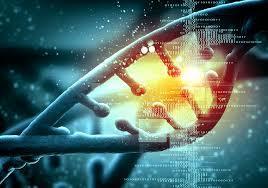





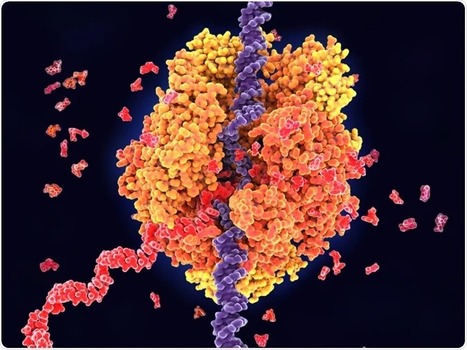
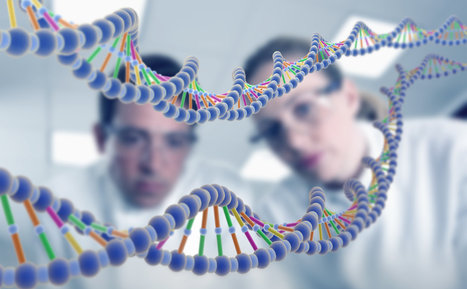
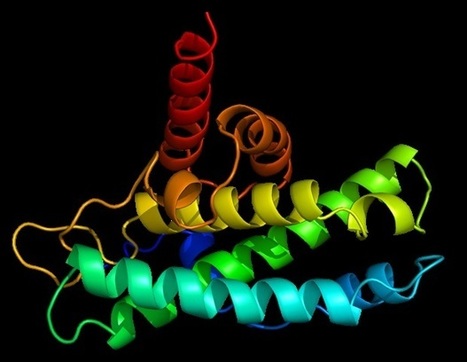
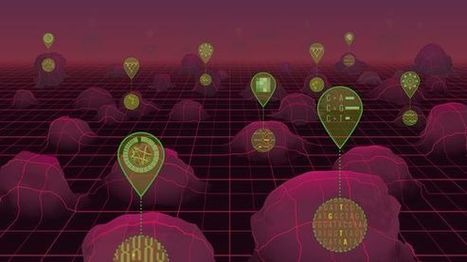


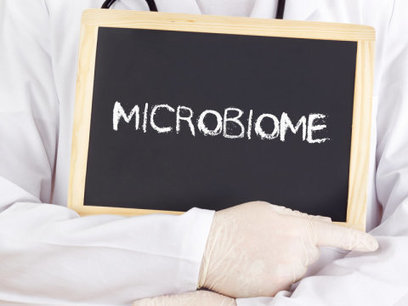
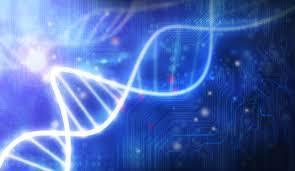

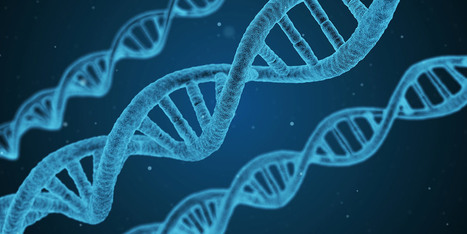
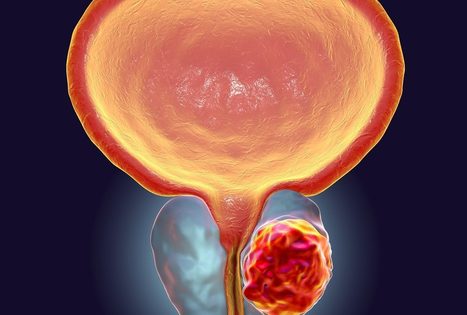
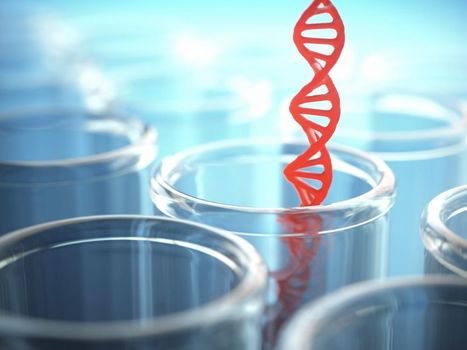
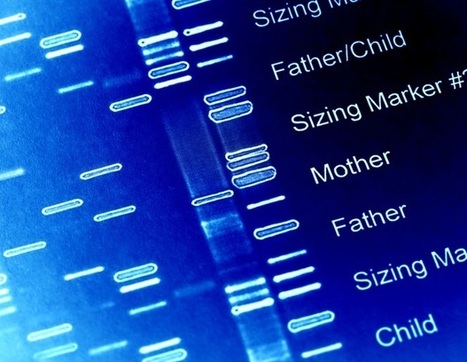
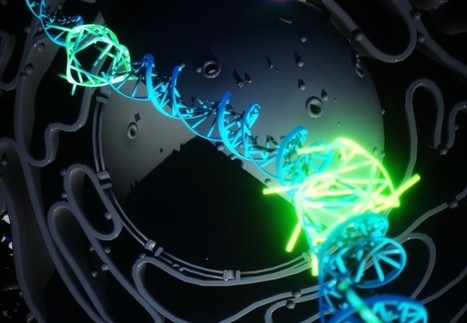
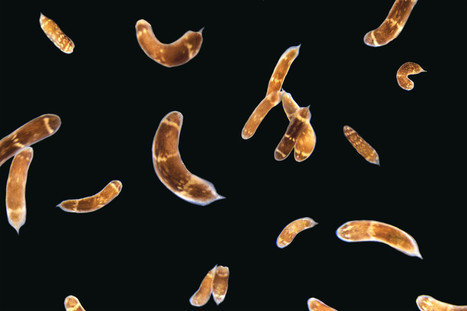
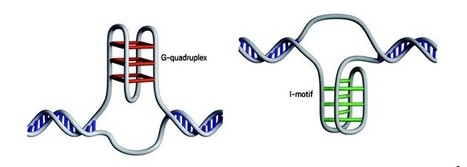
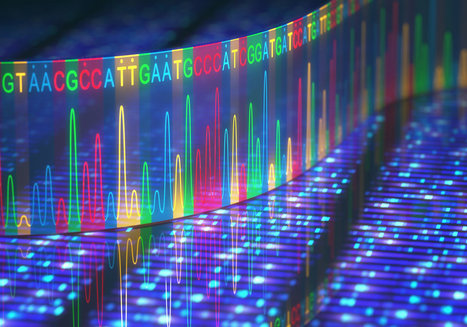
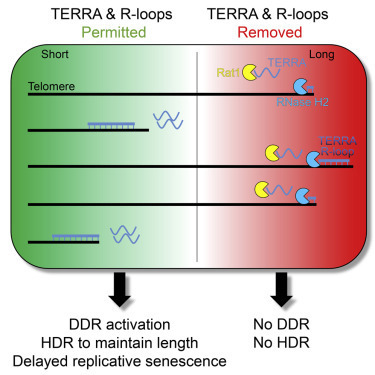





Cancer can be caused by genetic mutations, but the impact of specific types such as structural variants that break and rejoin DNA can vary greatly. Using CRISPR-Cas9 gene editing, the research team introduced genetic mutations by cutting DNA at certain points in the genome. They found that some of the variants they created had major impacts on the expression of nearby genes and could ultimately cause cancer, but most had virtually no impact. Some genes seemed to go haywire when introduced into environments with new regulatory sequences, and others were not affected at all. The type of sequence introduced seemed to have a huge impact on whether the cell became cancerous or not. The results, published in Nature on December 7, 2022, show that the activity of these mutations depends on the distance between a particular gene and the sequences that regulate the gene, as well as the activity level of the regulatory sequences involved. The team's next step is to test whether there are other factors in the genome that contribute to oncogene activation.